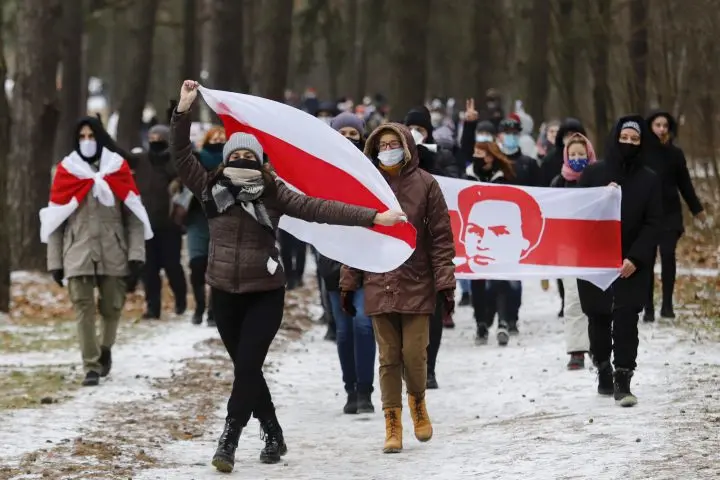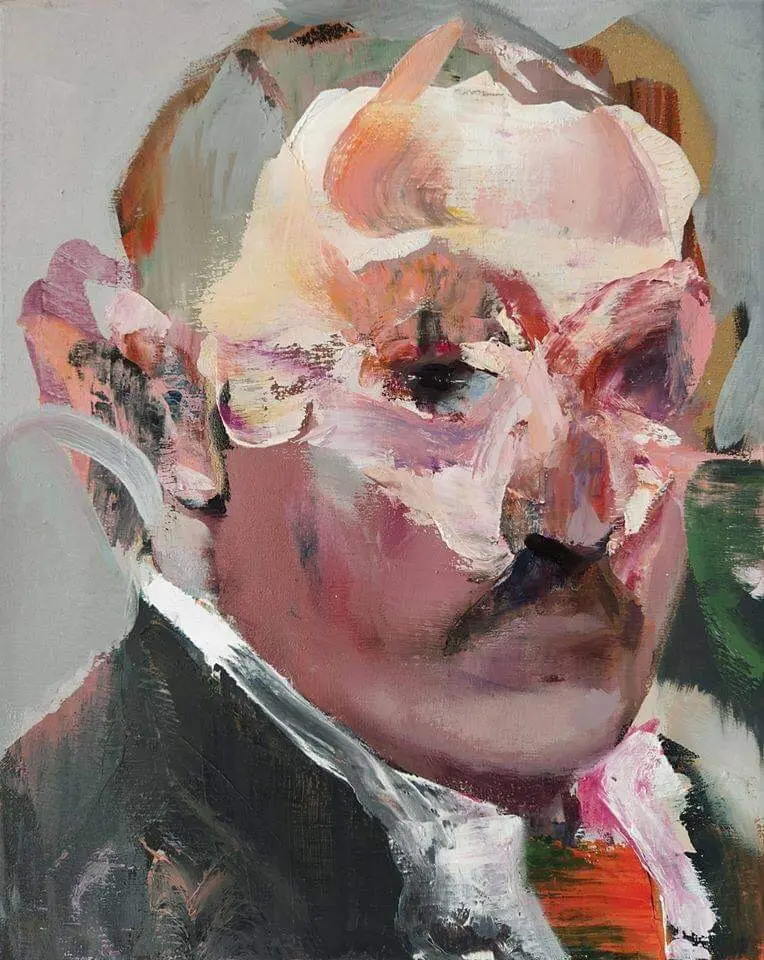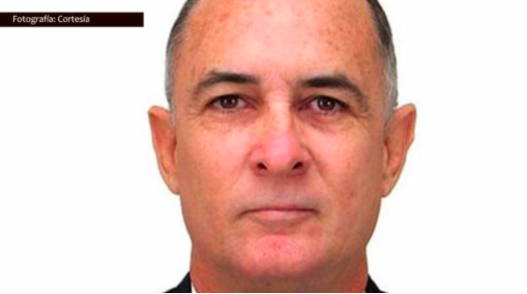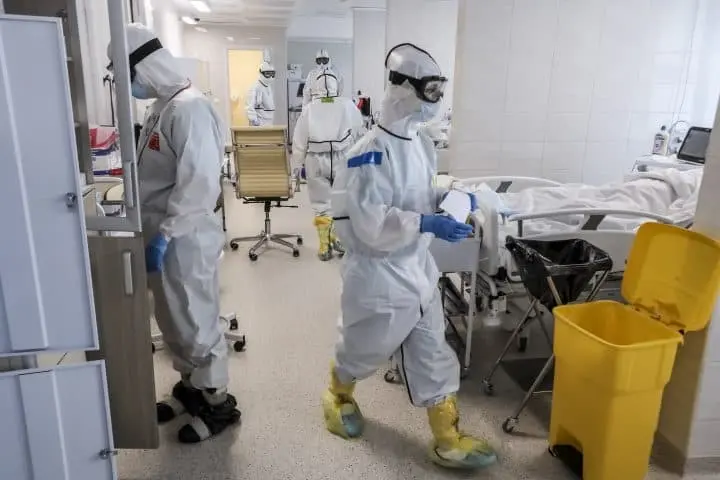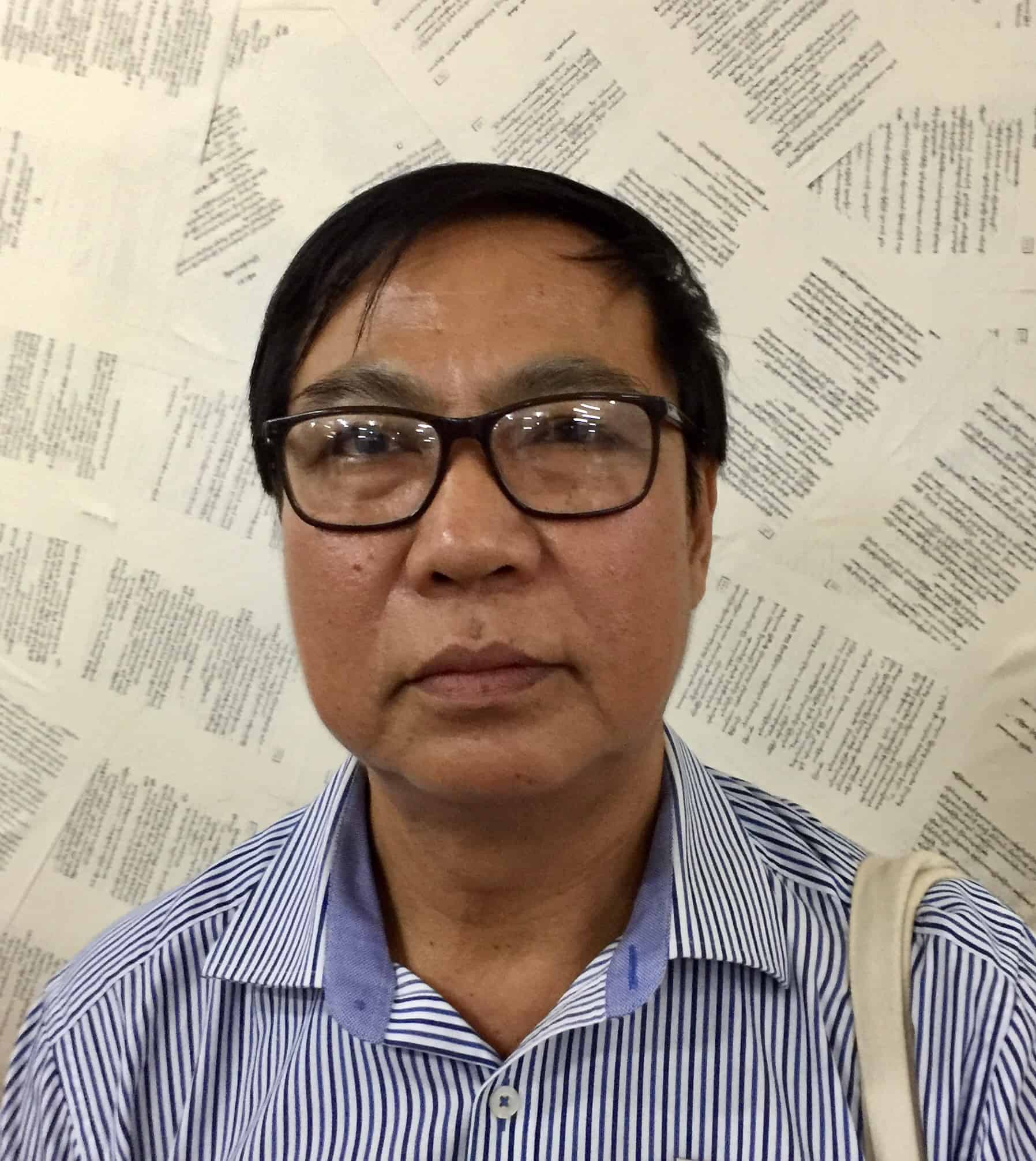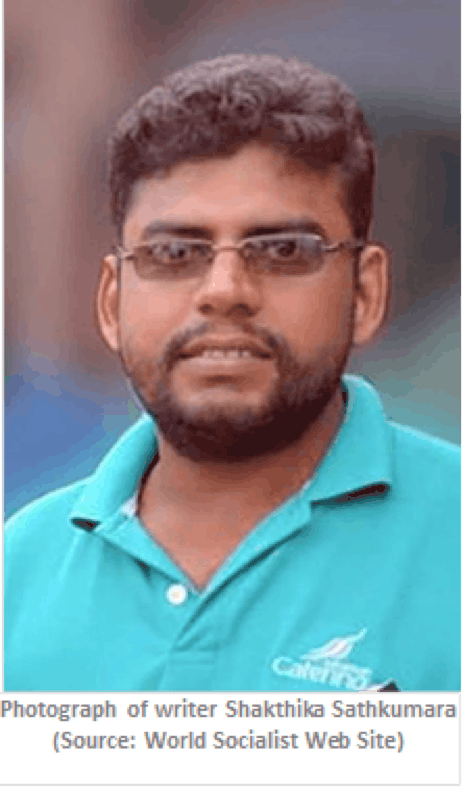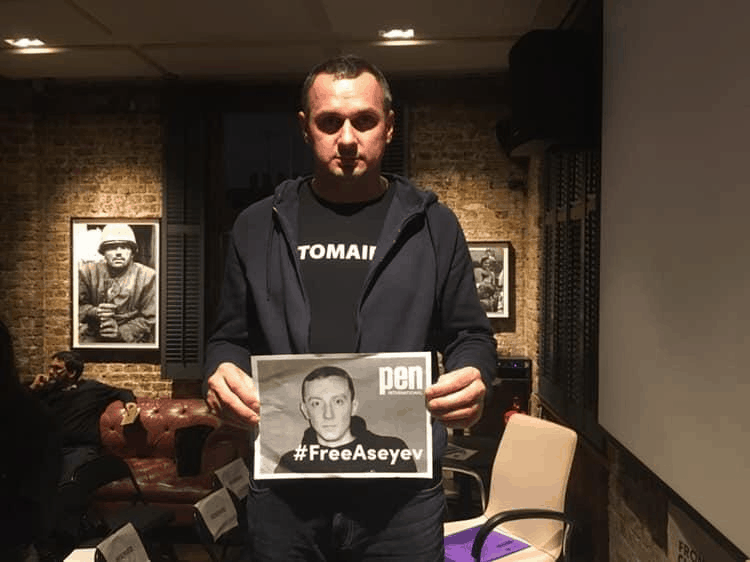Assessing the Human Rights Situation in Saudi Arabia
Testimony prepared for a hearing of the House Committee on Foreign Affairs Subcommittee on the Middle East, North Africa, and Global Counterterrorism—March 18, 2021
Thank you, Chairman Deutch and Ranking Member Wilson, for convening this timely hearing on the human rights situation in the Kingdom of Saudi Arabia.
PEN America, founded in 1922, unites writers and their allies to celebrate creative expression and defend the liberties that make it possible. We are grateful for the opportunity to testify today on the ongoing assault on human rights and free expression in Saudi Arabia.
The defense of individual writers at risk around the world lies at the heart of PEN America’s work. We have been vocal and active in advocating for justice following the murder of Jamal Khashoggi through statements, letters, events, and engagement with U.S. officials and policymakers. In 2019, we awarded our annual PEN/Barbey Freedom to Write Award to Saudi women’s rights activists and writers Nouf Abdulaziz, Eman Al-Nafjan, and Loujain Al-Hathloul. We recognized them for their fearless work exposing the indignities and deprivations of Saudi’s infantilizing “guardianship” system over women.
When Saudi Arabia hosted last year’s virtual G20 proceedings in Riyadh, PEN America mounted a Counter-Summit and campaign to uplift the voices of those whom the Saudi government seeks to silence. The event, translated into Arabic and broadcast live on Twitter, featured human rights experts, family members of prisoners of conscience, and legislators from several countries. In 2019, we published a first-ever annual global census of writers who are imprisoned for their work, the PEN America Freedom to Write Index. In that inaugural count, Saudi Arabia was the world’s second worst jailer of writers and intellectuals, with 38 behind bars, second only to China.
While the recent, conditional release of several Saudi writers and women’s rights activists, including Loujain Al-Hathloul, is welcome, it must not blind us to the ongoing reality of sustained repression. Legal harassment, detention, and physical violence constrict the freedoms of those who dare to speak out on sensitive subjects. Even those who are released are far from free, still subject to travel bans, surveillance, and the risk of renewed imprisonment. The long arm of Saudi Arabia’s brutality was chillingly demonstrated by the Khashoggi murder. The regime’s determination to hunt down dissenters wherever they are instills a sense of fear from which there is no escape, even far beyond Saudi borders.
Free Expression in Saudi Arabia
Saudi Arabia has long been one of the most restrictive countries in the world for human rights, including freedom of expression and the press. Crown Prince Mohammed bin Salman (known colloquially as MBS) is sometimes described as a “modernizer.” But changes to policies and practices must not be mistaken for true liberalization, much less a commitment to human rights. The Crown Prince has sought to consolidate his hold on power by pairing social reforms popular with young Saudis with an intensifying crackdown on dissent and free speech. This is a deliberate, two-pronged strategy to tamp down challenges to his authority by mollifying those willing to be appeased, while viciously attacking any who resist. Measures to loosen restrictions on dress, entertainment, social media, and women’s autonomy have been paired with a clampdown on the country’s most potent rights advocates and dissenters. Loujain Al-Hathloul’s case offers a striking example. Women were granted the right to receive drivers’ licenses in June 2018. But just weeks prior, she and other women who had campaigned for over a decade to secure this right were arrested, entering a nearly three-year legal odyssey involving incommunicado detention and torture. The Crown Prince took the credit for lifting the unpopular ban on driving but went to extreme lengths to prevent those who had championed the cause from receiving credit or moving on to wage new fights for rights.
In further waves of arrests in April and November 2019, Saudi authorities detained prominent writers and activists in a move evincing utter imperviousness to international outcry in the wake of the Khashoggi killing. Examples include Redha Al-Boori, a writer and journalist who was detained for almost two years in an unknown location; Moqbel Al-Saqqar, a novelist noted for his support of women’s rights, who was held in pretrial detention without access to legal counsel for almost two years; Bader Al-Ibrahim, a doctor and author of a book on Shiite Muslim politics; and Saudi feminist writer and online commentator Khadija Al-Harbi, arrested alongside her husband, the journalist and blogger Thumar Al-Marzouqi, while in the late stages of pregnancy. The practice of arbitrary detention continued into 2020: for example, several writers—notably, the novelist Ali Al-Shadwi, writer and professor Aql Al-Bahili, and writer and economist Abdulaziz Al-Dukhail—were detained in April 2020 for making public statements to express condolences following the death in custody of prominent activist and reformer Abdullah Al-Hamid. In many of these cases, individuals spent multiple years in detention without charge, a practice commonly used against writers and public intellectuals in Saudi Arabia.
Even when charges eventually do materialize, the Saudi judicial process is opaque and arbitrary; detainees are often not provided access to adequate legal counsel or are not allowed to choose their own lawyer and are often informed that a court hearing has been scheduled only days or sometimes even hours in advance. Sentences are lengthy and extreme, designed to send a repeated message that dissent will be punished with severe consequences. After 3 years of arbitrary detention, economist and writer Essam Al-Zamil was sentenced to 15 years in prison on trumped-up terrorism charges in October 2020 after he criticized Aramco, the Saudi national oil company, and its inflated valuation on the stock market.
Other long-standing cases of writers, intellectuals, and activists jailed for extended periods have largely disappeared from the headlines but should not be forgotten. Blogger and activist Fadhel Al-Manasef has been in some form of state custody since 2011. Blogger and creator of the website Free Saudi Liberals Raif Badawi has been jailed since 2012 on charges of blasphemy and was sentenced in 2014 to 10 years in prison, 1,000 lashes, and a fine of 1 million Saudi riyals; he remains in prison. Reportedly, authorities are considering charging him with additional “crimes” in order to extend his incarceration. Writer Nadhir Al-Majid was arrested in 2017 and sentenced to 7 years in prison and an additional 7-year travel ban upon expiration of his prison sentence for his writings. In all of these cases, the only “crime” committed was the exercise of the universal right to free expression.
Recent Trends and Ongoing Issues of Concern
At least 36 writers and public intellectuals were detained or imprisoned in Saudi Arabia during 2020. While recent months have seen some prominent dissidents and activists released, in almost all cases they continue to face stringent conditions and ongoing legal proceedings that prevent them from traveling, speaking publicly, or returning to their writing, activism, or professional life. Loujain Al-Hathloul, a women’s rights advocate and writer who was one of PEN America’s 2019 Freedom to Write honorees, was conditionally released in February of this year after more than two years in prison that included periods of solitary confinement and torture. Loujain’s case received significant international attention, and there is little doubt the Saudi regime released her in part to burnish its tattered image, especially in the eyes of the new Biden administration. However, as her family has noted repeatedly, she cannot be considered truly free. The conditions of her release include a five-year travel ban and three years of probation, during which the threat of rearrest will limit her ability to speak freely or engage in any activism. Just last week, a Saudi court upheld her original sentence and affirmed the restrictive conditions of her release. Her attempts to seek redress for the grave abuses she endured while in state custody have thus far failed. Loujain’s brother Walid asked us to share this message on her behalf: “Loujain is released but she is not free. Any restriction on her movement and ability to speak are proof that the Saudi government continues to harass her indirectly.”
Other released writers, journalists, and rights defenders including Eman Al-Nafjan, Bader Al-Ibrahim, and Salah Al-Haider have reportedly also faced restrictions including house arrest, travel bans, or the inability to return to their professional jobs, and have not been able to speak and write freely in the public sphere. Yet even the exact terms of many individuals’ releases are difficult to determine, given the opacity of judicial processes in Saudi Arabia. Detainees and their families often fear that making the details of their cases and detention public will prompt the government to snatch back whatever small amount of freedom it has granted.
The recent releases, while a step in the right direction, are insufficient while the broad restrictions on free speech remain in place. Ongoing challenges to free expression in the country include the harsh repercussions—primarily in the form of incommunicado detention and politicized legal charges—directed at dissident voices within the Kingdom who dare to speak out, as well as their families. The long arm of Saudi repression reaches into the diaspora as well; Saudi activists in exile face online surveillance, hacking, trolling, or other forms of intimidation designed to create fear and chill their writing or advocacy abroad.
The Path Forward
The present moment represents a critical juncture to reorient U.S. policy on Saudi Arabia, making good on President Biden’s promise to “re-calibrate” the relationship, to tip the scales in the direction of human rights. Saudi Arabia also represents an essential proving ground for an Administration that hopes to restore the U.S.’s legitimacy and leadership on human rights worldwide. The timing of the release of Loujain Al-Hathloul and other activists within weeks of President Biden’s inauguration was no coincidence. It demonstrates the leverage the administration can wield, if it is willing to do so. After taking the crucial step of releasing the Office of the Director of National Intelligence (DNI) report confirming MBS’s complicity in the Khashoggi murder, the Biden Administration announced that the U.S. would sanction 76 Saudis—but not the Crown Prince. The decision to spare the Crown Prince in order to protect other facets of the US-Saudi relationship risks overshadowing other important measures taken, including the adoption of the “Khashoggi Ban” that allows visa restrictions for officials responsible for extra-territorial attacks on journalists. Robust further measures are essential to ensure that neither Saudi Arabia nor the rest of the world are left with the impression that the American commitment to human rights and press freedom will be traded away when the stakes are highest.
The Crown Prince must face meaningful personal consequences for having directed a gruesome crime that shocked the conscience of the world. Otherwise, the shroud of untouchability shielding not just him but other abusive autocrats with whom the U.S. does business will stiffen, with grave implications for global press freedom, free expression, and human rights.
With respect to MBS, Congress and the Administration must remain focused on visible steps to ensure that the Crown Prince is not seen to have gotten away with murder simply by virtue of his status. Representatives Tom Malinowski (D-NJ), James McGovern (D-MA), and Andy Kim (D-NJ) have introduced the Saudi Arabia Accountability for Gross Violations of Human Rights Act that would restrict the grant of a U.S. visa to MBS and the others named in the DNI report. This would formalize what we all know, which is that the Crown Prince must not be welcomed back onto the world stage, not anytime soon and not absent visible, substantial, and durable change. The bill would also require the administration to certify that the Saudis are no longer engaged in a pattern of intimidation or harassment of people inside the United States in order to continue buying arms from the U.S.
Additionally, Congress should pass the Protection of Saudi Dissidents Act, reintroduced this year by Representative Gerry Connolly (D-VA), in order to help deter further harassment and violence against activists and dissidents by the Saudi government. This legislation would prohibit arms sales to Saudi intelligence, internal security, or law enforcement until Saudi Arabia meets certain human rights conditions.
Congress should enact the Jamal Khashoggi Press Freedom Accountability Act, introduced by Representative Adam Schiff (D-CA) and Senator Amy Klobuchar (D-MN), which would prohibit U.S. foreign assistance to governments that commit human rights violations against journalists, and sanction their leaders.
Last summer, National Security Adviser Jake Sullivan, at the time the foreign policy advisor to then-candidate Biden, outlined necessary U.S. responses to the Khashoggi killing. Alongside condemnation and investigation, he referenced the need for “securing a set of pledges from the Saudi government about what they were going to do going forward to make sure that this kind of thing and things like it don’t happen again.” In the context of a bilateral relationship vital to both parties, the Administration should insist that such pledges be made in order to fortify and enable future partnership with the U.S. The Biden Administration’s commitment to rejoin the UN Human Rights Council presents one vehicle. Saudi Arabia has been a member of the UN Human Rights Council for 12 of the 15 years since the Council was created. In running for a Council seat the Kingdom has voluntarily pledged to consider joining key human right treaties and cooperating with UN human rights mechanisms. But they have never made good on these promises. The Biden Administration and the U.S. Congress should press Saudi Arabia to publicly adopt both the Universal Declaration of Human Rights and the International Covenant on Civil and Political Rights, both universal human rights instruments that Saudi Arabia has never joined. Saudi Arabia should be pressed to permit entry to UN special procedures to carry out their work within the country, and to establish a UN office for human rights in the Kingdom that would help implement and assess planned legal and judicial reforms. These measures would offer the Saudis a way to signal that they take seriously the US’s insistence on concrete pledges as a predicate to continued good relations. Most importantly, they could lay a foundation for ensuring follow-up actions and implementation to make good on expanded human rights commitment.
Loujain Al-Hathloul’s sister Lina shared these words with us: “Loujain was released thanks to international pressure, and the fight for her should not end here. Loujain is a symbol of Saudi Arabia’s human rights defenders, and giving up on her now is giving up on the fight for freedom. Having an absolutely free Loujain could help path the way for real reforms in Saudi Arabia, and could help hundreds of other political detainees.” Many members of Congress have been actively engaged in speaking out on behalf of writers, activists, and other human rights defenders in Saudi Arabia, and that action has made a difference. Together we must keep up the fight.


